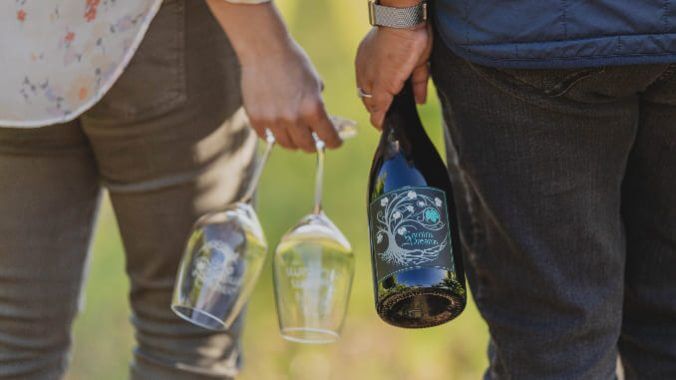Indigenous-Owned Wines to Try During Native American Heritage Month
Photo courtesy of Camins 2 Dreams
This year, we saw many winemakers adopting and embracing natural winemaking. As someone studying wine academically, I’m constantly seeking sources for information on the stories behind our winemaking and wine-sharing practices in North America, so I’ve been interested in researching where these winemaking concepts originated.
All the buzzwords surrounding natural wine might seem new and exciting to European Americans and Canadians, but these are winemaking methods that many countries (that have been making wine longer than us) already historically practice. Furthermore, sustainable agricultural practices existed in this country long before Europeans brought wine here.
Avant Partir representative Amanda Kimbrough was the first to educate me about natural winemaking practices adopted from Indigenous agricultural principles, particularly noting the widespread lack of credit given to Native Americans and First Nations people. In my quest for understanding these principles, Telesomm founder Vanessa Raymond suggested I read Julia Watson’s Lo-TEK: Design by Radical Indigenism. This is a manual for understanding the Indigenous philosophies behind sustainable practices with in-depth examples from all over the world.
The argument of Lo-TEK is that we need to embrace “Indigenous innovation” for humans and nature to work “in symbiosis.” If wine is going to survive as a community essential in North America, it’s important that we understand how and why to implement sustainable, ethical and adaptable winemaking practices—and it’s even more imperative that we credit Indigenous people for their foundational agricultural philosophies.
This November, I’ve done a deep dive into learning about three Indigenous wineries and their winemaking practices. We should be celebrating Native American Heritage Month by learning about these wineries and supporting the wines they create.
Camins 2 Dreams
Camins 2 Dreams was founded by wife-and-wife team Mireia Taribó and Tara Gomez. Both began their relationships with wine at young ages and knew they wanted to study wine later in life. Taribó has two bachelor’s degrees—one in chemistry and one in enology—and a Master’s of enology, viticulture and marketing of wine; Gomez also has her bachelor’s in enology.
Gomez has pioneered many wine projects over the years. In the early 2000s, she started her first label, Kalawashaq’ Wine Cellars, which she named after the village where her Chumash ancestors are from. She put this project on hold while she traveled the world, eventually working with Taribó in the Pyrenees Mountains of Spain.
-

-

-

-

-

-

-

-

-

-

-

-

-

-

-

-

-

-

-

-

-

-

-

-

-

-

-

-

-

-

-

-

-

-

-

-

-

-

-

-








































